Spring arrives slowly but surely in Connecticut. Daffodils and tulips begin to poke up from the thawing ground, and crocuses begin to appear alongside melting snow. Dogwoods and forsythia burst into bloom, adding welcome hues to the landscape. And all across the state, homeowners rush to prepare their lawns and gardens for the warmer weather.
Connecticut has a robust number of farmers raising flowers, shrubs, and other plants that can help you breathe new life into your landscape, create enticing displays within your home, and add beauty to your special occasions. Spring is a busy time for these producers, who make up the largest share of Connecticut’s agriculture.
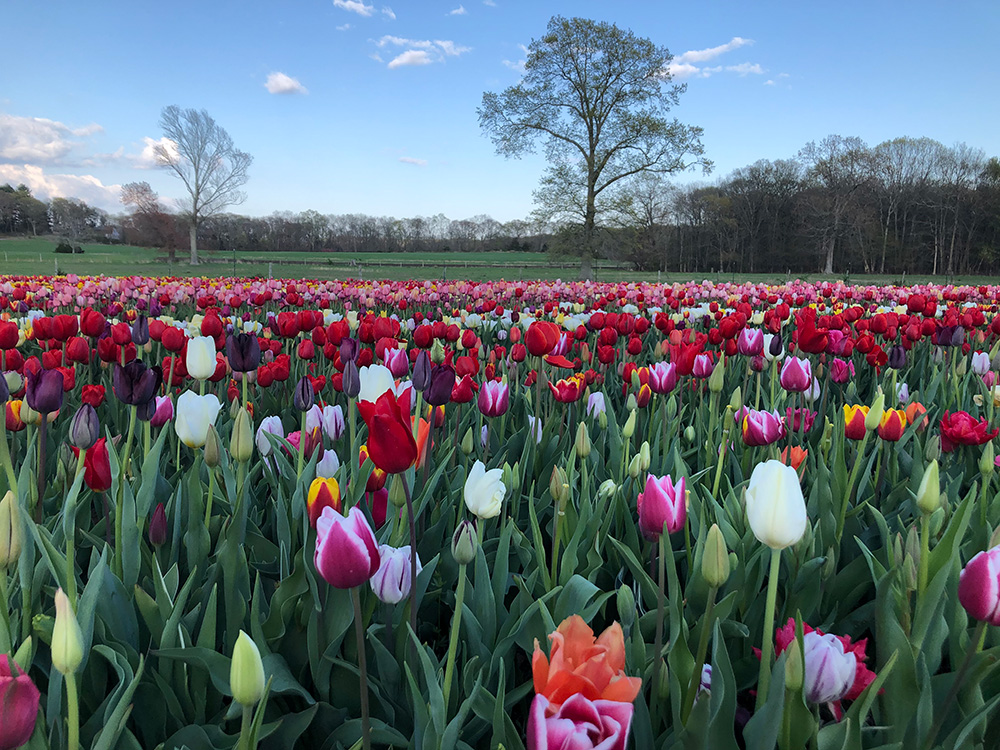
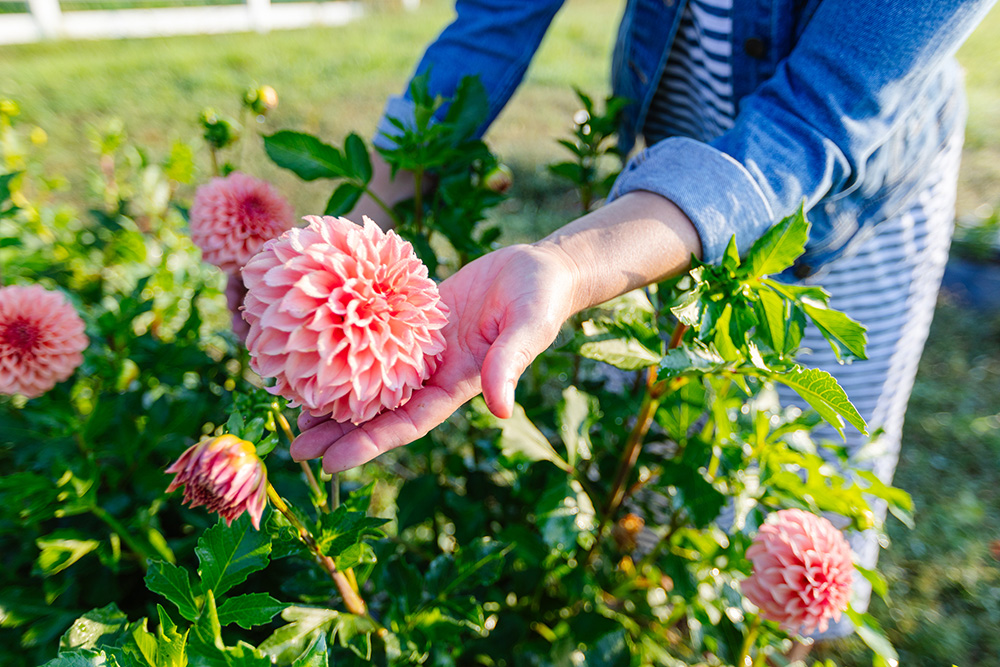
In this blog, we explore how Connecticut’s greenhouses, nurseries, farms, and garden centers are excellent places to visit during the spring. Whether you’re looking to improve your home or simply want a memorable experience, you’ll find something that’s right for you.
Greenhouses, nurseries and garden centers
Throughout the winter, Connecticut’s greenhouse and nursery producers have been busy sowing seeds, potting plants, and preparing to assist customers in the new growing season. By visiting a CT Grown greenhouse or nursery, you’ll receive:
- Expert guidance: Whether you’re trying to liven up a shady spot or need advice on growing a specific plant, greenhouse and nursery producers can offer expert advice and care plans tailored to your own property.
- Educational opportunities: The spring season often brings workshops and other educational opportunities at greenhouses and nurseries. Attendees can learn about seed starting, container gardening, composting, and much more.
- Great deals: To encourage people to pursue the big plans they have for their garden, nurseries and landscapes may offer discounts or open up loyalty programs at the beginning of the spring season. Take advantage of these to enjoy savings throughout the year.
- New inspirations: A visit to a garden or nursery can inspire a new vision for your home. Discover new plant options and features that can transform your rooms or landscaping.
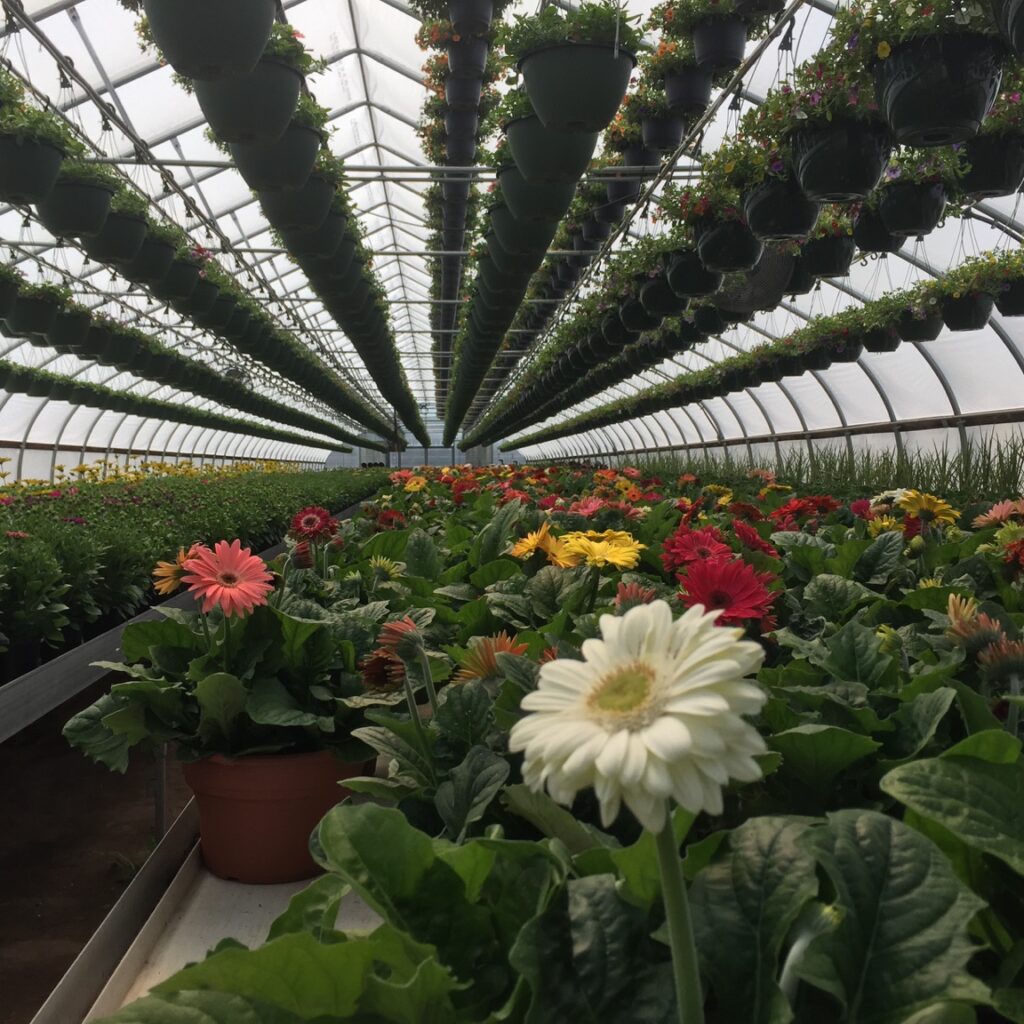
There’s no shortage of products available at greenhouses and nurseries to get a jump on the year’s gardening plans, including:
- Annual flowers: Although annuals only last a single season, they add a welcome pop of color to your garden and are easy to care for. Some of the annuals available in spring include Easter lilies, impatiens, marigolds, pansies, and petunias.
- Perennial flowers: Perennials return year after year, making them an easy option for long-term garden planning. Some spring perennial choices include coneflowers, daylilies, and hostas.
- Shrubs: A useful choice for boundaries or privacy barriers, shrubs can also create beautiful landscaping and support pollinators when you choose flowering varieties like butterfly bushes, hydrangeas, and viburnums.
- Fruiting trees: Add a small orchard alongside your vegetable garden using varieties like apple and cherry trees.
- Vines: Transform vertical surfaces into part of your garden using vining plants like clematis and honeysuckle.
- Vegetable starts and seedlings: Plants that have been sown indoors — including eggplants, herbs, peppers, and tomatoes — let you get a jump on the year’s harvest.
Walk-through flower experiences
Some farms in Connecticut give visitors an up-close look at the returning floral landscape by offering walk-through experiences. Visitors can stroll through the fields and marvel at the spectacle of thousands of flowers in bloom together.
In a relaxing, meditative experience, visitors are surrounded by the visual beauty and delightful scents of a sea of flowers. These scenes are also a popular photographic backdrop for everything from family portraits to engagement shots.

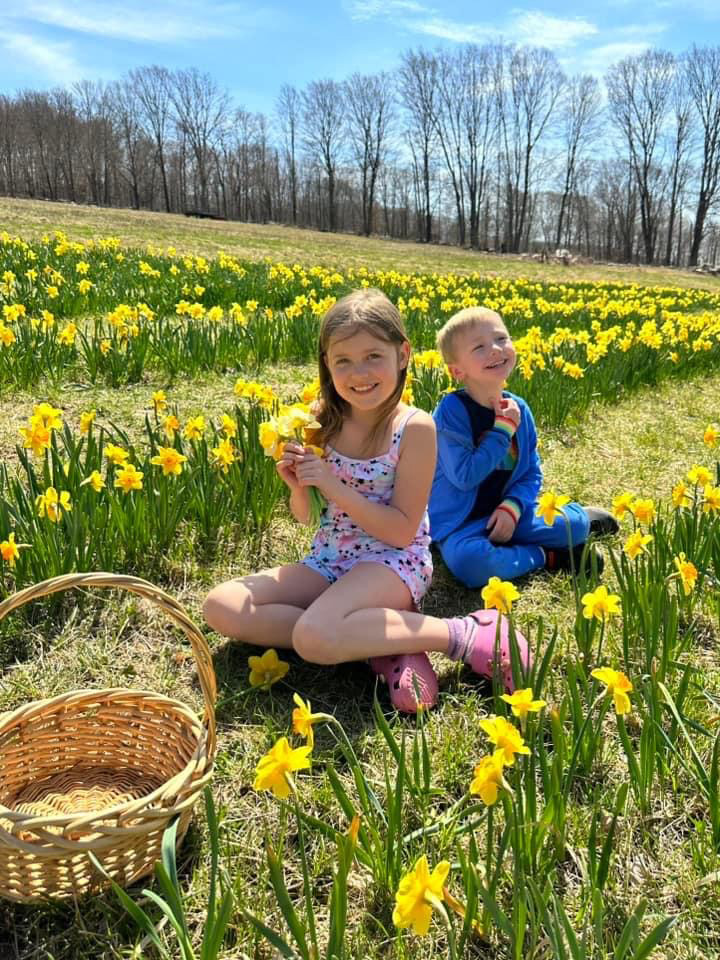

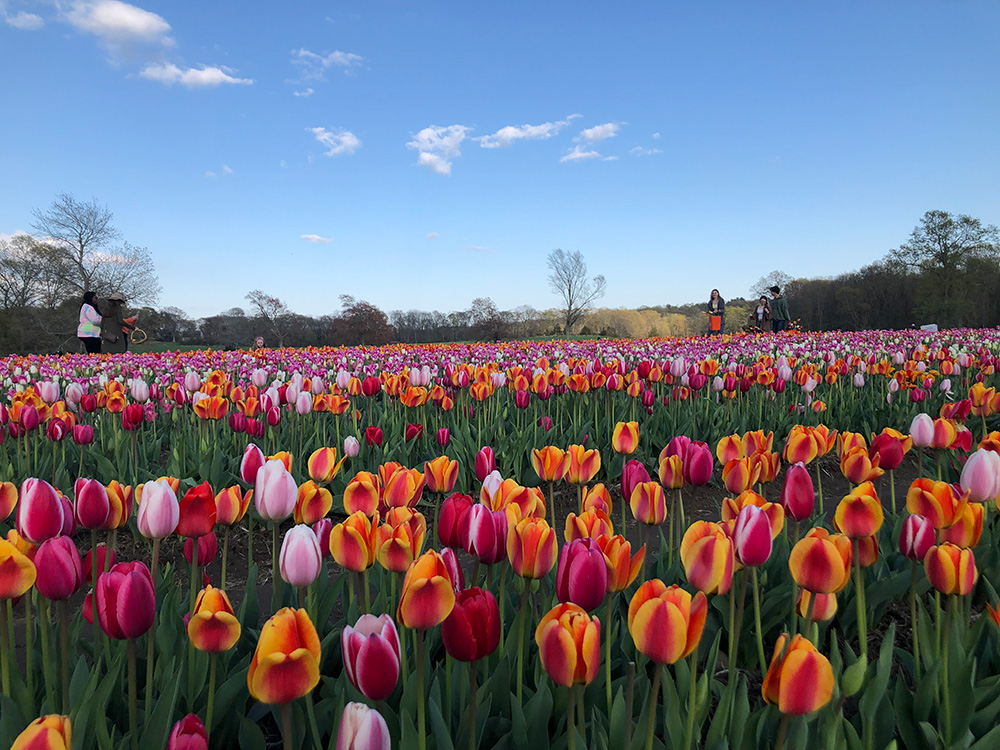
Walk-through flower experiences are often paired with pick-your-own options that let you take home a beautiful bouquet. Some options in Connecticut include:
- Halfinger Farms (Higganum): Every year, “Dancing Daffodils” at this farm lets visitors visit a field of these brilliant yellow flowers and pick their own selection. Halfinger Farms hosts several special events alongside the daffodil season, while also raising additional flowers such as peonies, violas, and mums.
- Lavender Pond Farm (Killingworth): Denise Salafia established this farm as a tribute to her mother, who died of breast cancer. Today, it invites visitors to walk through the fields as thousands of lavender plants come into bloom.
- Wicked Tulips (Preston): One of three locations growing a total of more than 1.5 million tulips, Wicked Tulips gives visitors the one-of-a-kind experience of walking through a vast field of these flowers during their brief but awe-inspiring time in bloom.
- Willow View Farm (West Suffield): Along with thousands of ornate dahlias, this farm lets visitors pick a selection of varieties that include daffodils, peonies, and tulips.
Cut flower CSAs
Community Supported Agriculture (CSA) programs go well beyond the traditional shares of fruits and vegetables, and Connecticut’s thriving floriculture businesses mean that there are plentiful options to find cut flower CSAs. Farms may offer these options either on their own or as an optional add-on to another CSA.
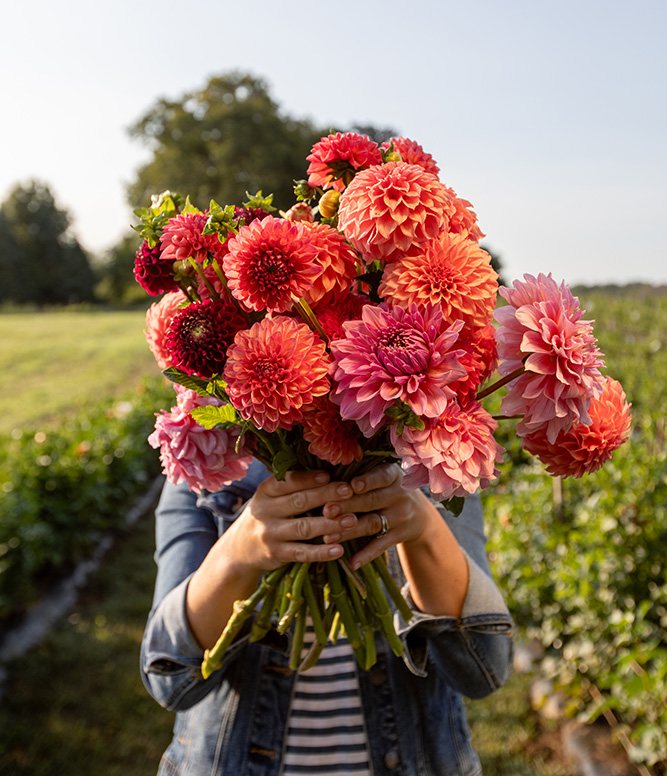
Spring flower CSAs are an excellent choice for people who can’t wait to get fresh flowers back into their home after a long winter. These feature seasonal flowers such as alliums, anemones, canterbury bells, daffodils, hyacinths, narcissus, ranunculus, and tulips. Farms often grow specialty varieties that aren’t usually found in stores, allowing each farm to create bouquets with a distinctive look.
Cut flower CSAs continue into summer and autumn, with each new share changing based on what’s in season. Some farms may also offer these CSAs into the winter, featuring greenhouse-grown flowers.
To find a cut flower CSA near you, visit the CT Grown map.
The new harvest season will be here before you know it, and there’s still time to sign up for a CT Grown CSA! By joining a Community Supported Agriculture program this winter, you’ll receive regular shares of fresh, nutritious food for months to come.
Read more about your CSA options in our latest newsletter, or visit one of these resources to learn more: